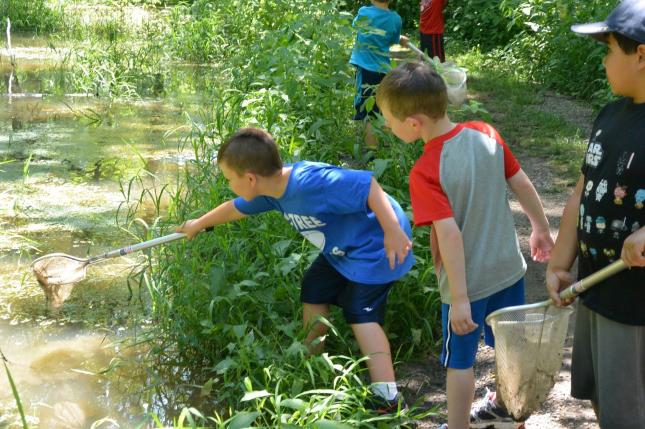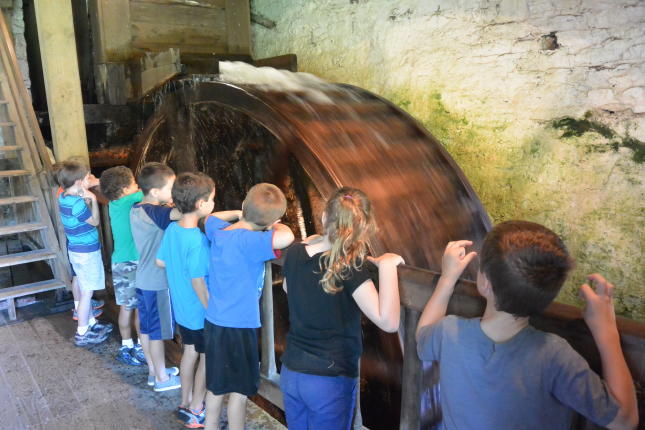The Many Facets of Newlin Grist Mill
The Many Skills to Keep it Going
One of the fascinating things about Newlin Grist Mill is exactly how many projects are being worked on all the time. Taking care of the historic buildings, 8 miles of trails, and 160 acres of land requires a wide array of skills.
Staff members need to know historic trades and skills like wood working and period cooking, but also how to care for collections items and archive documents. The park’s habitats and trails also require specialized skills- habitat management, tree maintenance, and biological inventory are all used regularly. In the office, staff work hard on fundraising, marketing, and graphic design, as well as research projects and educational programs. All of these skills combine to create a community resource that can be enjoyed by all.
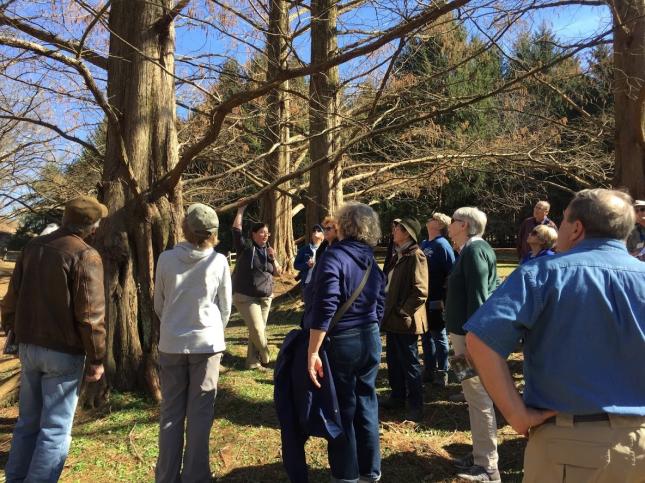
Fall Harvest Festival
The Harvest Festival started in the early 1980s as a sheep shearing festival with demonstrations. Over time, it developed into a craft festival with historic craft demonstrations.
In 2009, the festival evolved again into a celebration of historic crafts and skills featuring local craftspeople, and now fills the historic area on the other side of Cheyney Road. Since then, the event has grown into a gathering of historic skills and tradespeople from all over the Mid-Atlantic region, and includes period entertainment, a colonial market where people can shop, and a tavern. Families from all over the region come to explore the market stalls, try their hand at historic skills, and taste delicious historic recipes.
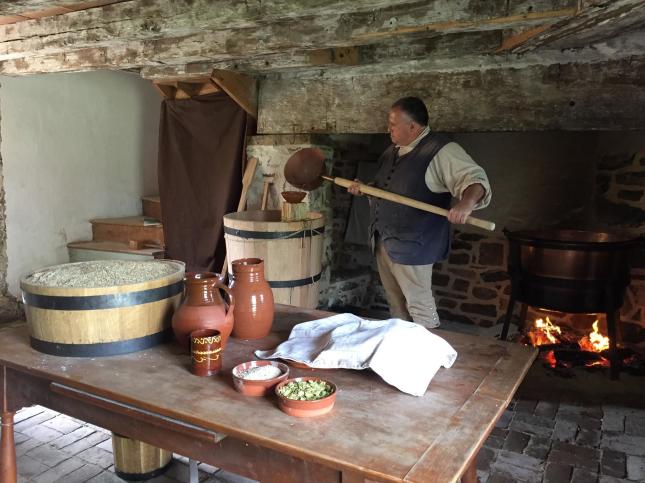
Millwright Shop
One of the challenging aspects of operating an 18th century mill is keeping everything functional. This means constant maintenance, and, occasionally, large scale restoration projects. Newlin Grist Mill is currently in the middle of one: rebuilding their water wheel and flume.
Their previous wheel (installed around 2000) had reached the end of its usable lifespan and was in dire need of replacement. But they took this as an opportunity to build a new wheel to be more in line with recent research into early 18th century English water wheels. They’ve also elected to approach the build itself as a study in 18th century millwrighting, by building every piece of the wheel and flume by hand using reproductions of period tools and equipment in their new Millwright shop.
Production of Corn Meal at the Mill
The working 1704 Grist Mill is, unsurprisingly, the centerpiece of Newlin Grist Mill. While a variety of grains would have been ground in the Mill historically, cornmeal is the main product that is made there today.
Dried field corn is placed in the hopper to be fed in between the Mill’s heavy grinding stones, where it is ground into meal. The coarseness of the meal is controlled by how far apart the grindstones are set. The meal can later be sifted to remove the outer shell of the corn kernels if very fine flour is desired.
When the Mill is in operation, the Newlin staff regularly grinds cornmeal especially for sale in the site’s gift shop. Sold in 2-pound bags, this cornmeal is a very popular item. In addition to baking cornbread with it, it can also be used to make pancakes and waffles, porridge, and even cookies!
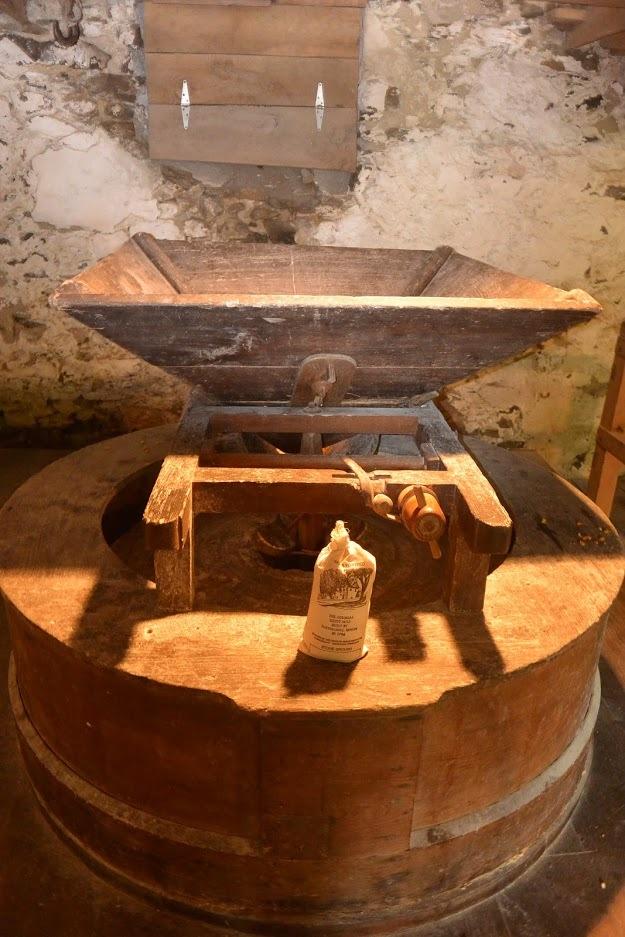
Sip Behind the Scenes / Brewing Projects
Brewing beer is a natural fit for Newlin Grist Mill—not only does beer require ground grains like barley, but later generations of the Newlin and the related Sellers family ran taverns and breweries in the region.
Newlin has teamed up in recent years with local breweries, including Twin Lakes (Newport, DE) and Levante (West Chester), to craft brews that reflect the site’s history, using malted grains grown in PA and produced by Deer Creek Malthouse (Glen Mills). The malt is ground in the Mill, and some of the brewing is done on site as a public demonstration.
In addition to these partnerships, Newlin has also teamed up with other local breweries, wineries, and distilleries for special “Sip Behind the Scenes” happy hour events. These free evening programs give adult visitors a chance to try craft beverages while chatting with the staff and enjoying the unique setting of the park.
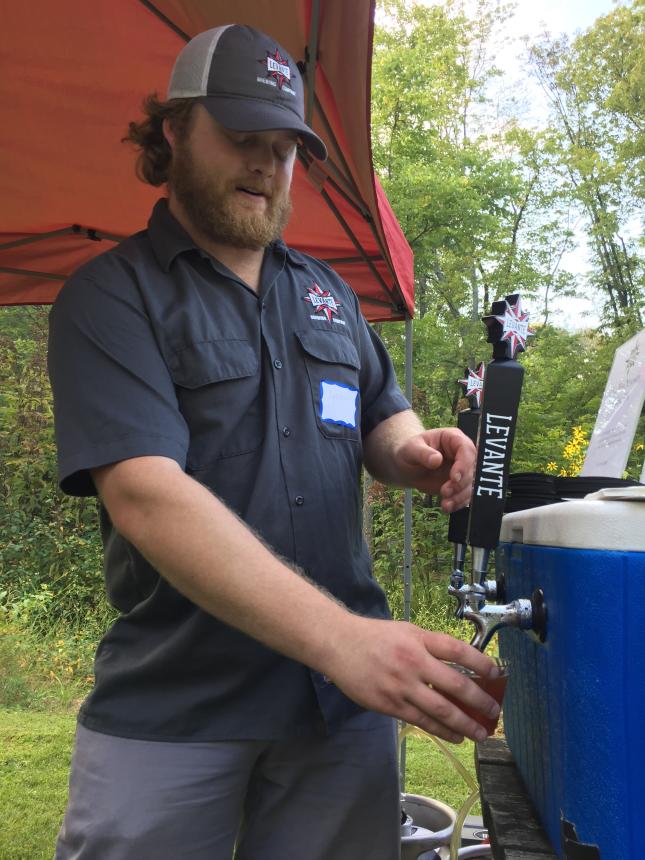
Educational Programs
Newlin Grist Mill hosts a wide variety of educational programs for thousands of visitors each year, ranging from informal public offerings to scheduled programs for schools, scouts, and other groups.
Monthly free public programs give visitors a chance to learn while having fun. The “History at Work” demonstrations feature historic skills, the “Pop-Up Naturalist” activities highlight the park’s habitats and wildlife, and “Public Archaeology Days” let people literally dig into history!
More formal educational programs at the site consist of field trips and group tours for children from preschool all the way up through college, as well as adults interested in opportunities for lifelong learning. Because of the unique dual mission of Newlin Grist Mill, these programs often combine activities to cover both history and environmental subjects, with tours of the Grist Mill and explorations of the Frog Pond being two of the most popular options!
